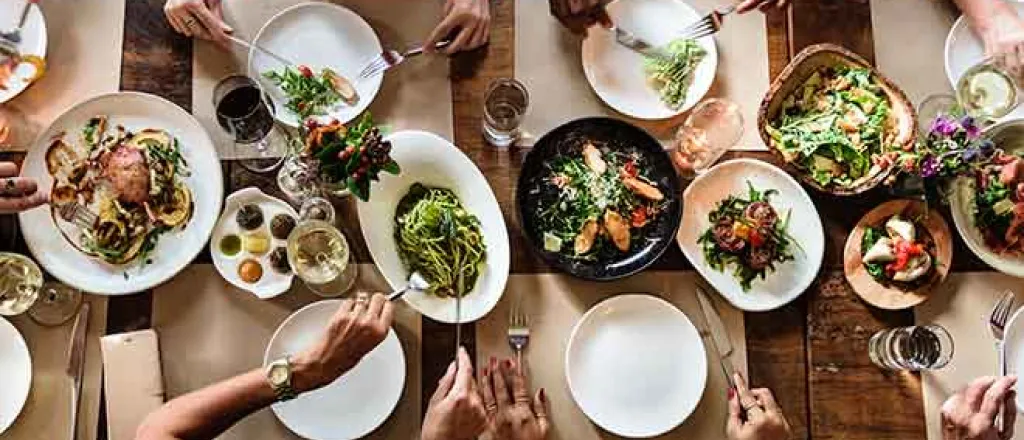
An expert says we learn to navigate the food "enjoyment curve", we might keep from gaining weight during the holidays. Gary Crawford has more.
PARTICIPANTS: Gary Crawford and Sharolyn Jackson with Kansas State University Extension.
Transcript
Well, we got through Thanksgiving, the first major holiday celebration, and did we eat?
I would imagine we overdid it, but look out!
Danger, Will Robinson, danger!
Thanksgiving's just the first of several holiday celebrations to come, and as we know...
All of our celebrations contain a lot of focus on various types of food.
Oh, they do, and Kansas State University Extension Consumer Science expert, Cherylin Jackson, says those foods are generally of the high-fat, high-calorie variety.
Not always, though, but they are so good, and many of us will plow into that food, eating faster and faster, eating like we were condemned or something, and you may have experienced the unpleasant results of that this past Thanksgiving.
What a friend of mine calls the enjoyment curve.
We eat for enjoyment as well as nourishment, and so maybe the Thanksgiving meal is a good example about how you eat and you're really enjoying the food, and you think, "Wow, that tasted really, really good," so you go back and you get some seconds on things, and then you get to the point where you just feel miserable.
Yeah, yeah, we hit the top of the enjoyment curve, fine, but didn't notice the little warning signs of trouble ahead, and suddenly we're rapidly about to run off the road, and enjoyment turns to something else.
We don't pay attention to the fact that we're not enjoying the food as we keep packing it in.
We don't hear the voice in our subconscious saying, "Please, somebody stop me."
We're actually feeling bad, bloated, overloaded.
Took too long for the brain to get the message from the stomach that it was full, very full, too full, but Charolyn says there are ways to avoid that crash off the enjoyment curve.
Some people call it mindful eating.
People in Japan call it hard-hachi-bu, and this is a Japanese principle where they only eat until they're 80 percent full.
It's a mantra that they say before they eat to prepare themselves to not eat past that point, to eat only until they're about 80 percent full.
Scientists believe that's a real powerful way that they're able to maintain a healthy weight on average for most of their lives.
Now, wait a minute, Charolyn, how do they know that they've hit 80 percent?
What, they got a gauge on their stomach, something to check that out?
No, I'm not.
I'm serious.
I think that a lot of it's just paying attention to how you feel and not eating so fast.
Charolyn says this may help keep us from gaining weight over the holidays too.
If we just slow down, not try to eat like it's fast food, instead say, "I want the slow food."
Slow down and have some slow food.
Slow food, yeah.
And eat it slowly.
This is Gary Crawford reporting for the U.S. Department of Agriculture.








